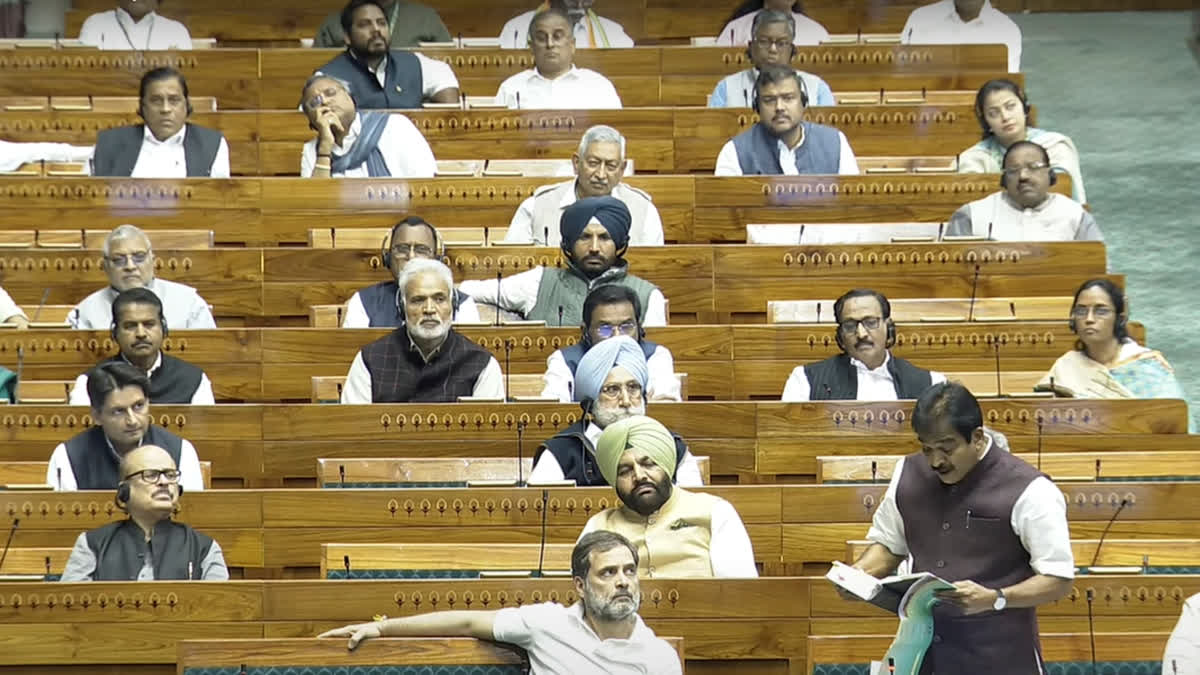Lok Sabha Passes Railways Bill, paving the way for significant changes in the governance and functioning of Indian Railways. Despite disruptions in the Winter Session, the Railways (Amendment) Bill, 2024, introduced by Union Railways Minister Ashwini Vaishnaw on August 9, was passed on Wednesday. This Bill grants statutory powers to the Railway Board and aims to simplify the legal framework governing railway operations in India.
Key Provisions Of The Railways (Amendment) Bill: Lok Sabha
The Railways (Amendment) Bill, 2024, incorporates crucial provisions to enhance the Railway Board’s authority and efficiency. Some of the key features include:
- Statutory Powers To The Railway Board: The amendment authorizes the Central government to determine the Railway Board’s composition, including the number of members, their qualifications, and terms of service.
- Operational Approvals: The Bill empowers the Centre to approve operations, expansions, or rerouting of superfast trains, including the Arunachal Express, through routes like Thawe Junction in Bihar.
- Streamlining Legal Framework: Provisions of the Indian Railway Board Act, 1905, are now incorporated into the Railways Act, 1989, eliminating the need to refer to multiple laws.
Importance Of Thawe Junction Expansion
One of the significant amendments in the Bill addresses the lack of direct train connections between Thawe Junction in Bihar and major cities like Delhi. By rerouting the Arunachal Express through Siwan, Thawe, Kaptanganj, and Gorakhpur, the amendment meets the long-standing demands of local residents, including migrant workers and pilgrims.
The changes aim to expedite approvals for these train services, enhancing connectivity for the region and addressing critical transportation needs.
Historical Evolution Of The Railway Board
Union Railways Minister Ashwini Vaishnaw highlighted the historical context of the Railway Board’s formation and its governance:
- Before independence, the railway network was part of the Public Works Department.
- The Indian Railways Act, 1890, was enacted to manage the growing network.
- In 1905, the Railway Board Act was introduced to separate railway operations from the Public Works Department.
- The Railways Act, 1989, replaced the 1890 Act, but the Railway Board continued without statutory sanction.
Vaishnaw explained that the current Bill simplifies the legal framework by integrating the Railway Board Act into the Railways Act, 1989, ensuring a unified and efficient governance structure.
Enhancing Railway Governance
The amendment aims to enhance the independence and functionality of the Railway Board. By granting statutory powers, the government seeks to streamline decision-making and improve the overall efficiency of Indian Railways.
Vaishnaw emphasized that these changes are crucial for modernizing the railway network and meeting the evolving needs of passengers and freight operators.

Parliamentary Discussions Amid Disruptions
Despite disruptions during the Winter Session, the Bill received support for its potential to improve railway governance. However, opposition parties raised concerns about centralization and transparency in the decision-making process.
The Railways Minister assured the House that the amendments are designed to benefit passengers, improve connectivity, and address the operational challenges faced by Indian Railways.
Future Implications Of The Railways Bill
The passage of the Railways (Amendment) Bill, 2024, is expected to have far-reaching implications:
- Improved Connectivity: Enhanced approvals for train operations will improve connectivity to underdeveloped regions.
- Streamlined Operations: A unified legal framework will reduce bureaucratic delays and enhance operational efficiency.
- Focus On Passenger Needs: Provisions like the expansion through Thawe Junction cater to regional demands and improve accessibility.
Strengthening Indian Railways
The Railways (Amendment) Bill, 2024, reflects the government’s commitment to strengthening Indian Railways. By modernizing governance structures and addressing connectivity gaps, the Bill aims to ensure that the railway network remains a vital part of India’s infrastructure development.
As the Bill moves forward, its impact on regional connectivity, passenger satisfaction, and overall railway operations will be closely monitored. This significant legislative milestone underscores the importance of continuous reforms to keep Indian Railways aligned with the nation’s growth aspirations.



